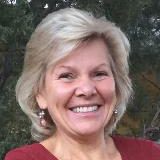Why the Quality of Literacy PD Makes All the Difference
As a young girl, I remember “traveling” to faraway places, living vicariously as I enjoyed the Bobbsey twins' adventures. Reading became my getaway, my solace, and my joy. Sometimes, I imagine how different my life would have been if I had struggled to learn to read. Perhaps that’s why my passion today is literacy research and helping teachers reach all students.
How can this be done? By developing teacher expertise through quality literacy PD.
To illustrate my point, let’s consider two scenarios, both centered on a struggling second grade student. In Scenario one, I am a teacher with little understanding of what it takes to teach reading. (That was once a true scenario for me.) In Scenario two, I am a teacher equipped with the deep content knowledge necessary to reach most every child.
Moving toward a diagnostic-prescriptive approach to instruction
Scenario one
Charlie read haltingly, made frequent errors, and relied on pictures to guess at unfamiliar words. He was falling behind his peers, and he noticed. Sadly, Charlie became the class clown, avoiding work, and diverting attention away from his difficulties. My approach? I told him to try harder, kept him inside at recess, had after-school sessions, and employed his parents to make him read more.
Like most inaccurate readers, Charlie was a weak speller, too. He misspelled these words on a spelling inventory:
| Target word | Misspelling |
| Fan | fn |
| Pet | pit |
| Dig | deg |
| Mob | mod |
| Rope | rop |
| Wait | wat |
| Chunk | juk |
| Sled | sad |
| Stick | sik |
| Shine | sin |
I had Charlie write each misspelled word five times, in rainbow colors. Then, I wrote each word on a 3x5 card and asked Charlie’s parents to drill him for homework. As you can guess, more of my ineffective, uninformed instruction led to the same disappointing results.
Scenario two
Charlie continued to read and spell inaccurately, but this time I understood the “why” behind his errors. For example, I identified phonological confusions in his inaccuracies. I knew which letter patterns he had mastered, and which still stymied him. Most importantly, I knew what to do about it. Let’s revisit Charlie’s misspellings to identify what an expert teacher knows and does.
| Target Word | Error | Initial letter sound | Final letter sound | Middle letter sounds | Instructional implications |
| fan | fn | correct | correct | Missing vowel sound; weak phonological representation | Direct instruction segmenting and blending 2- and 3-sound words. |
| pet | pit | correct | correct | Wrong vowel sound represented | Use mirrors; talk about chin drop. |
| dig | deg | correct | correct | Wrong vowel sound represented | Use mirrors; same issue with pet/pit! |
| mob | mod | correct | incorrect | correct | Reinforce letter formation. |
| rope | rop | correct | correct | incorrect | Used letter name for sound; teach silent e convention. |
| wait | wat | correct | correct | incorrect | Used letter name for sound. |
| chunk | juk | incorrect | correct | Missing nasal | Feel throat for voicing; Tap sounds. |
| sled | sad | correct | correct | Wrong vowel sound, missing liquid l | Use mirrors for vowel; tap sounds. |
| stick | sik | correct | correct | Missing liquid sound, error with –ck convention | Tap sounds, review –ck convention. |
| shine | sin | incorrect | correct | incorrect | Use mirrors to see and feel initial sound; teach silent e! |
Overall, Charlie had weak phonemic awareness. I could tell based on his frequent vowel errors. Intervention included discussions about airflow and the placement of his tongue/teeth/lips, using mirrors. Basic phonics and spelling patterns were taught within a predetermined scope and sequence, making note of his –ck and VCe errors. This, coupled with multiple opportunities to read and write taught patterns, rounded out his word work.
Currently, only 39 percent of 820 surveyed undergraduate programs address the National Reading Panel’s five essential components of reading (NCTQ, 2016*).
Sadly, most college courses misunderstand or omit these basics. To make up for the lack of rigor in teacher preparation, we turn to quality, in-service PD. LETRS (Language Essentials for Teachers of Reading and Spelling)
contains the powerful knowledge necessary to support teacher expertise. By developing an understanding about how the English language is organized, learning the science behind how brains process text, and teaching in a diagnostic-prescriptive manner, teachers are armed with the knowledge to impact change.
When educators know better, they do better. Every student deserves a well-informed teacher. We should expect no less.


